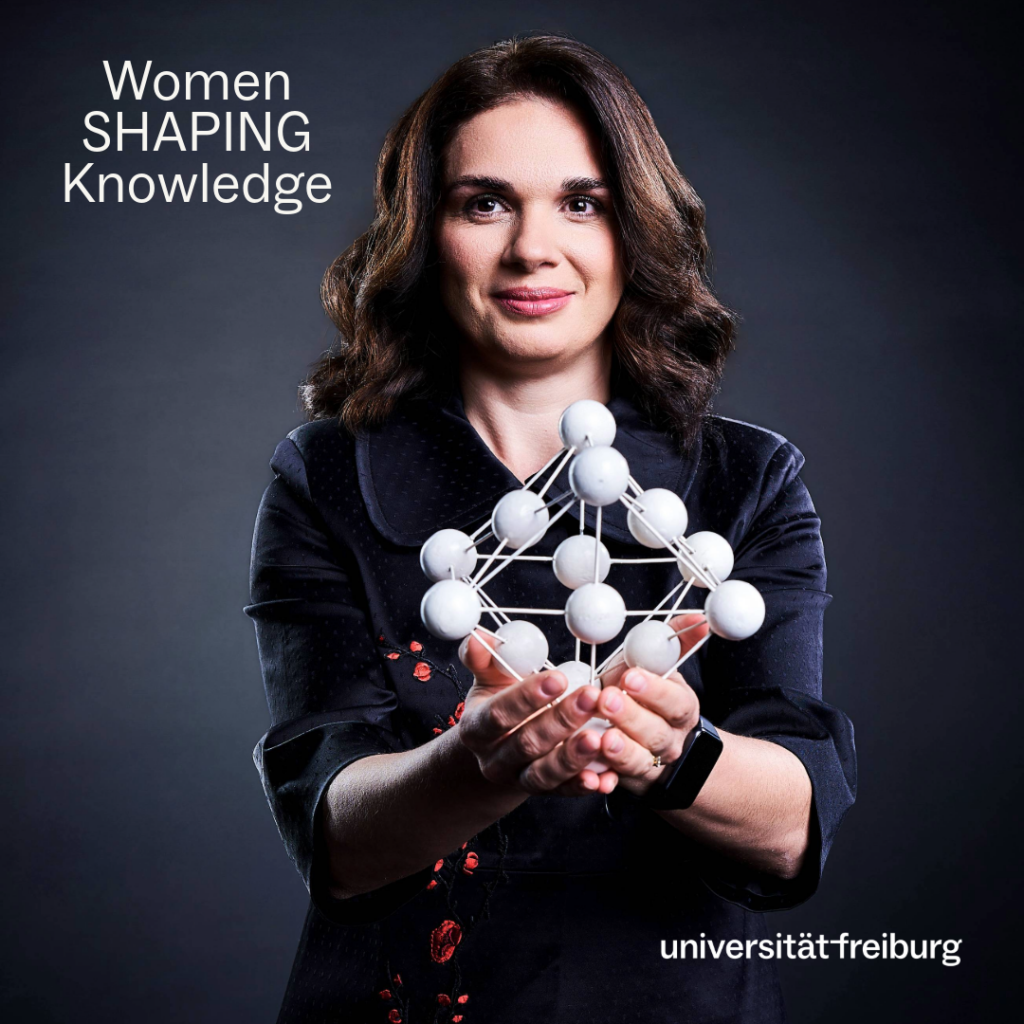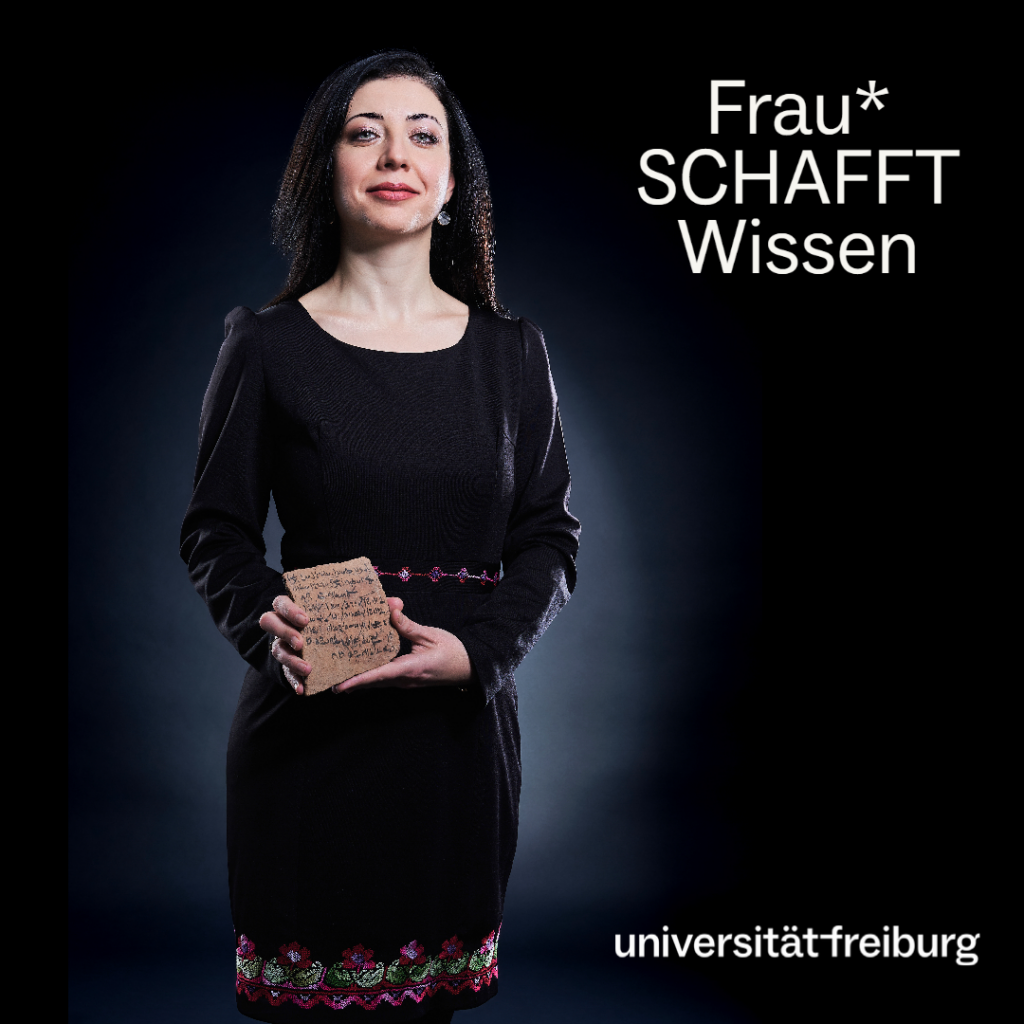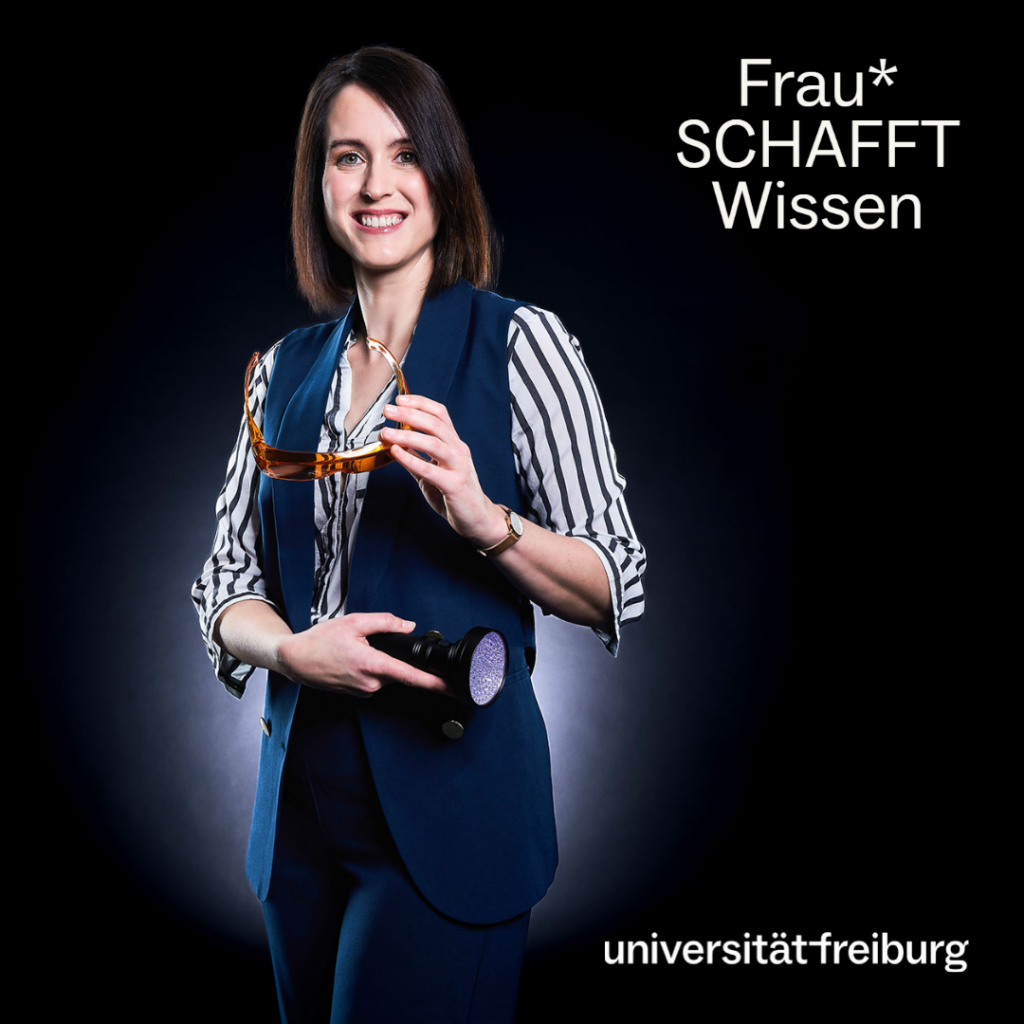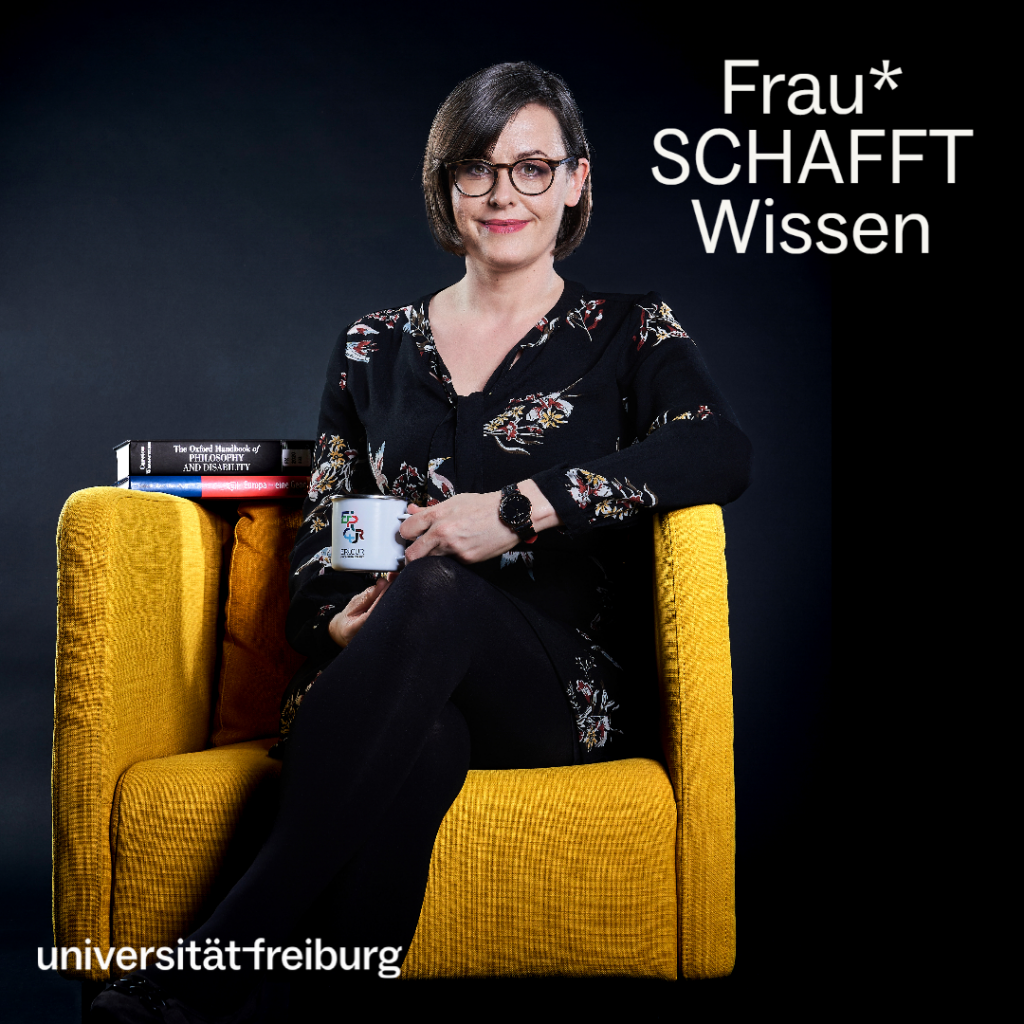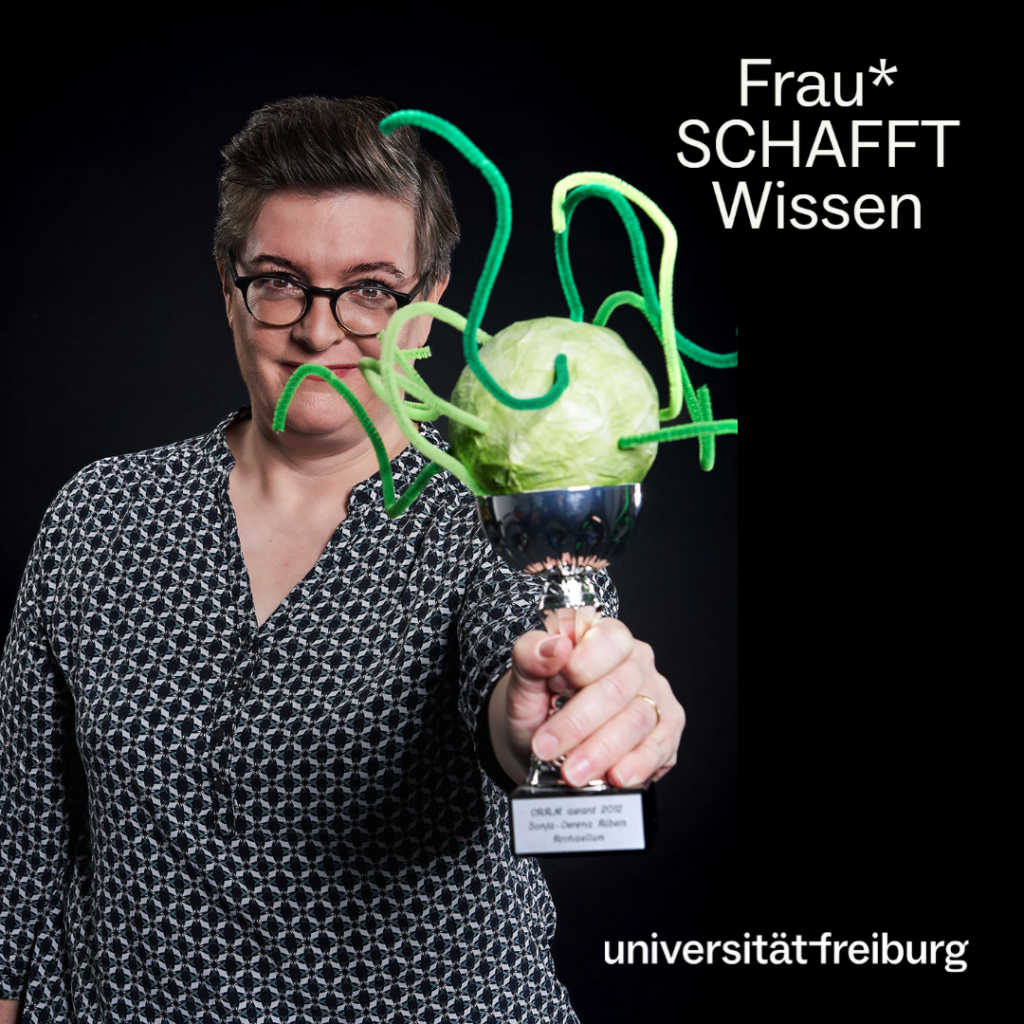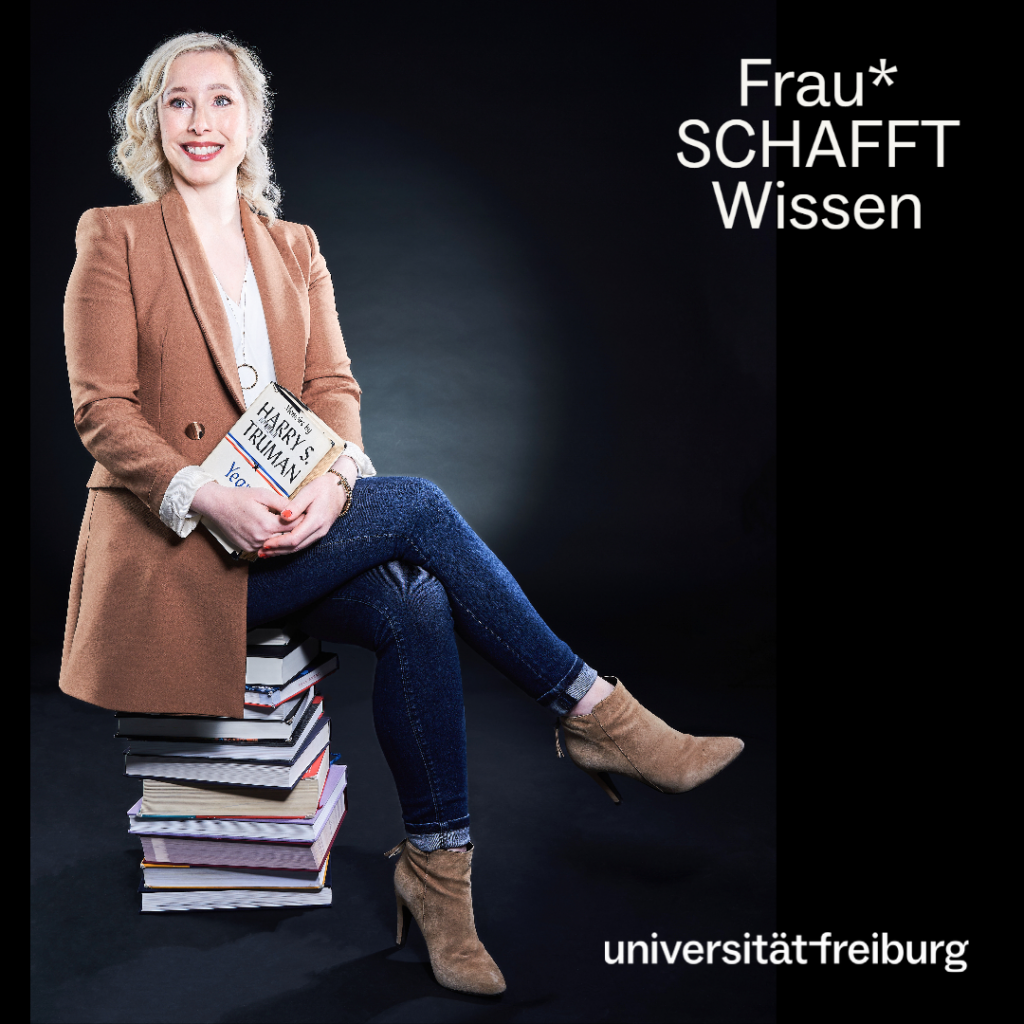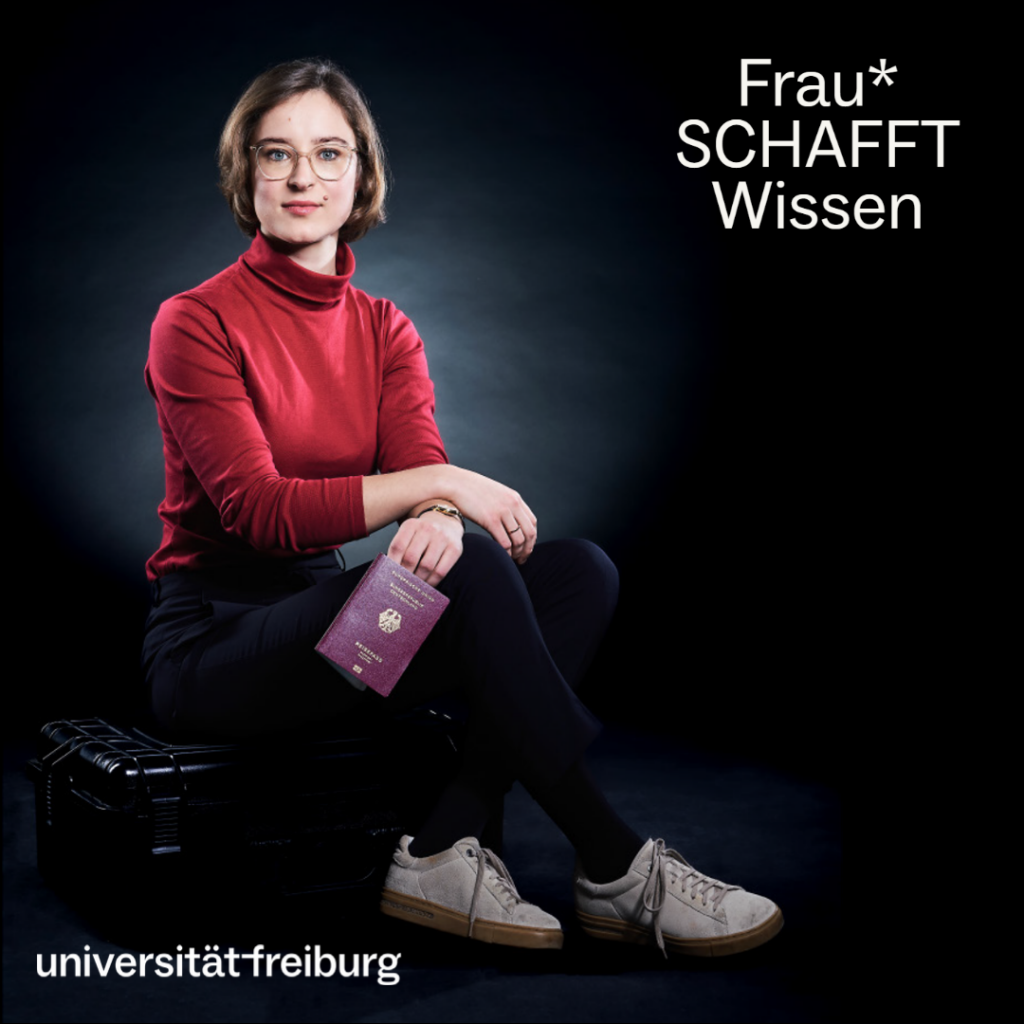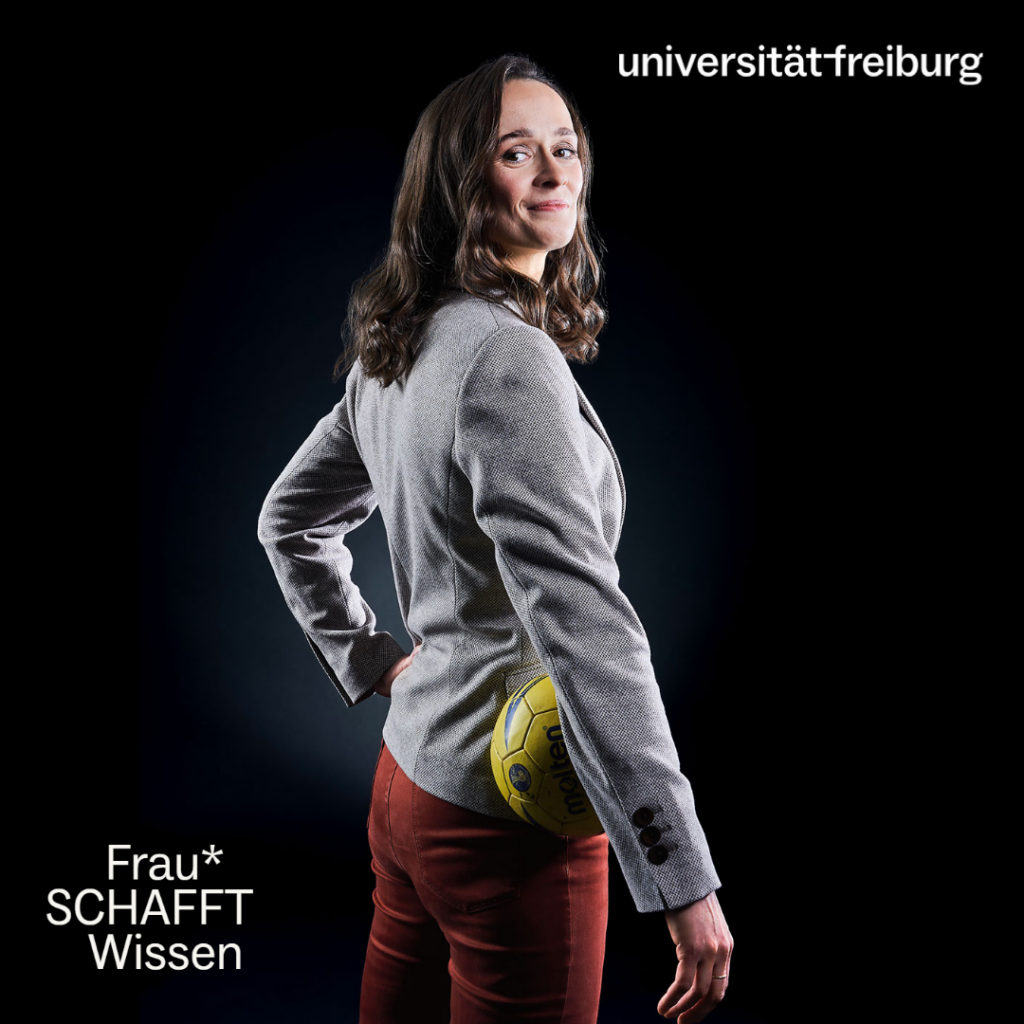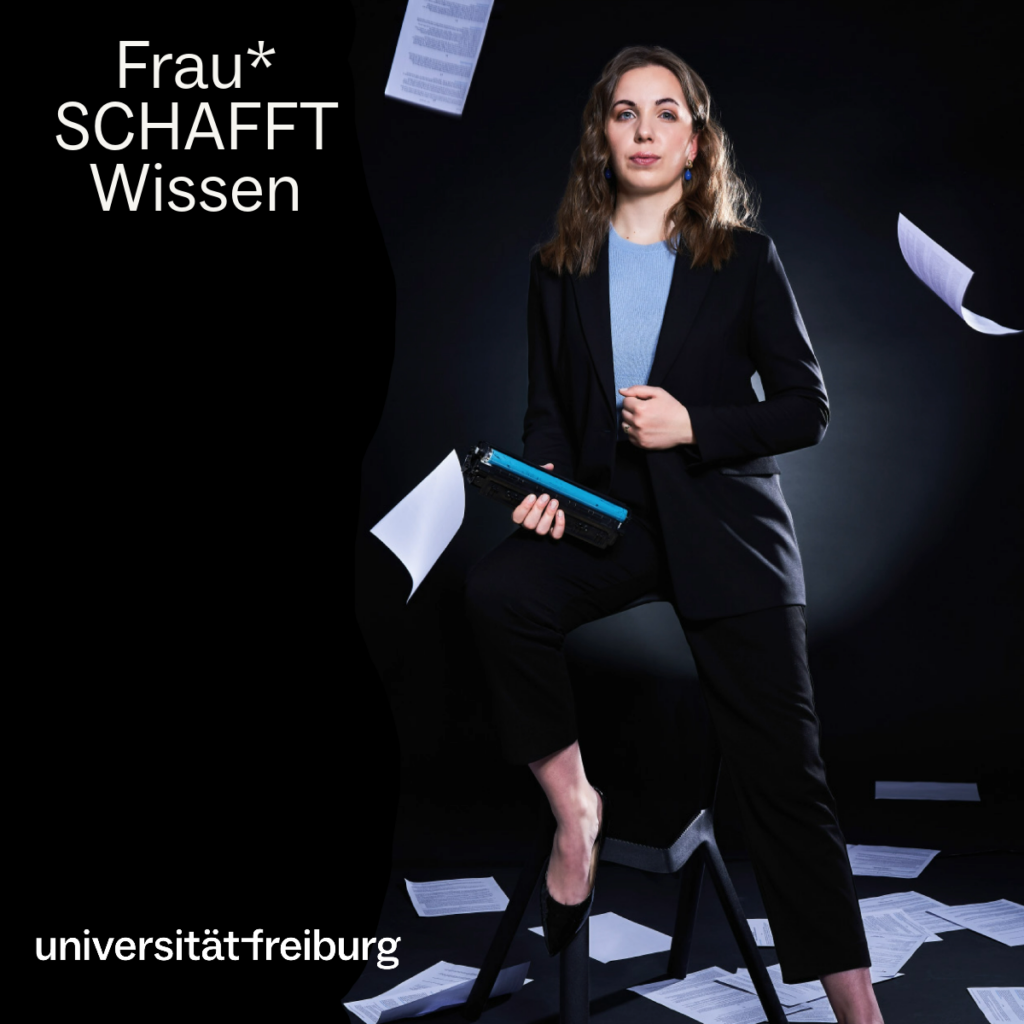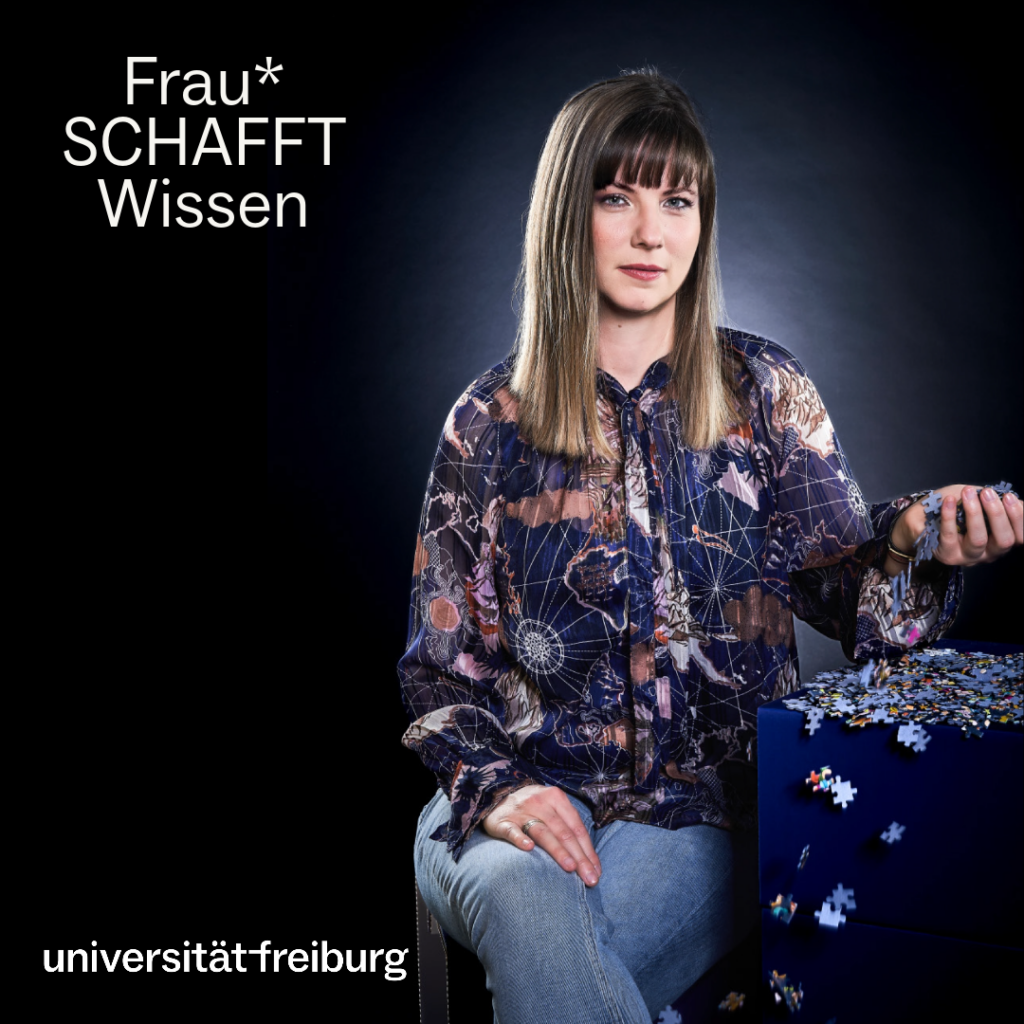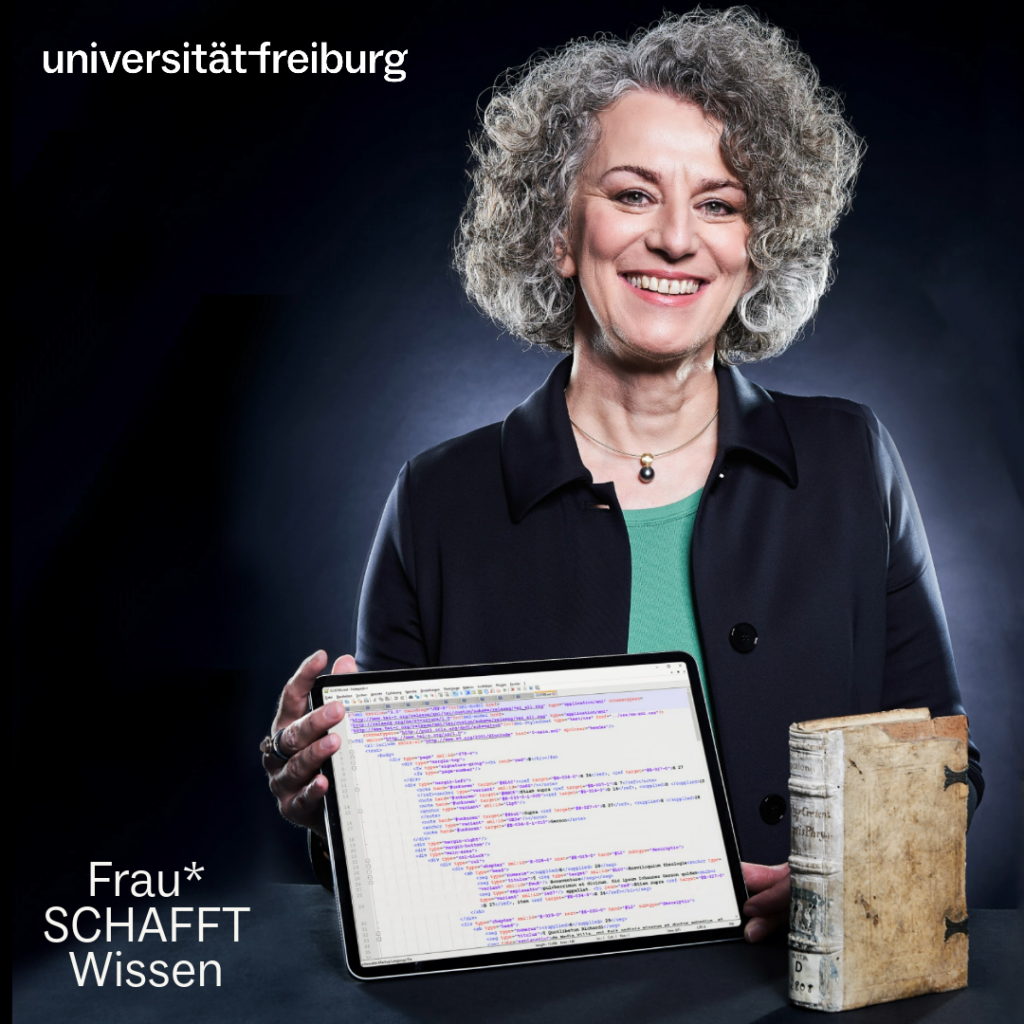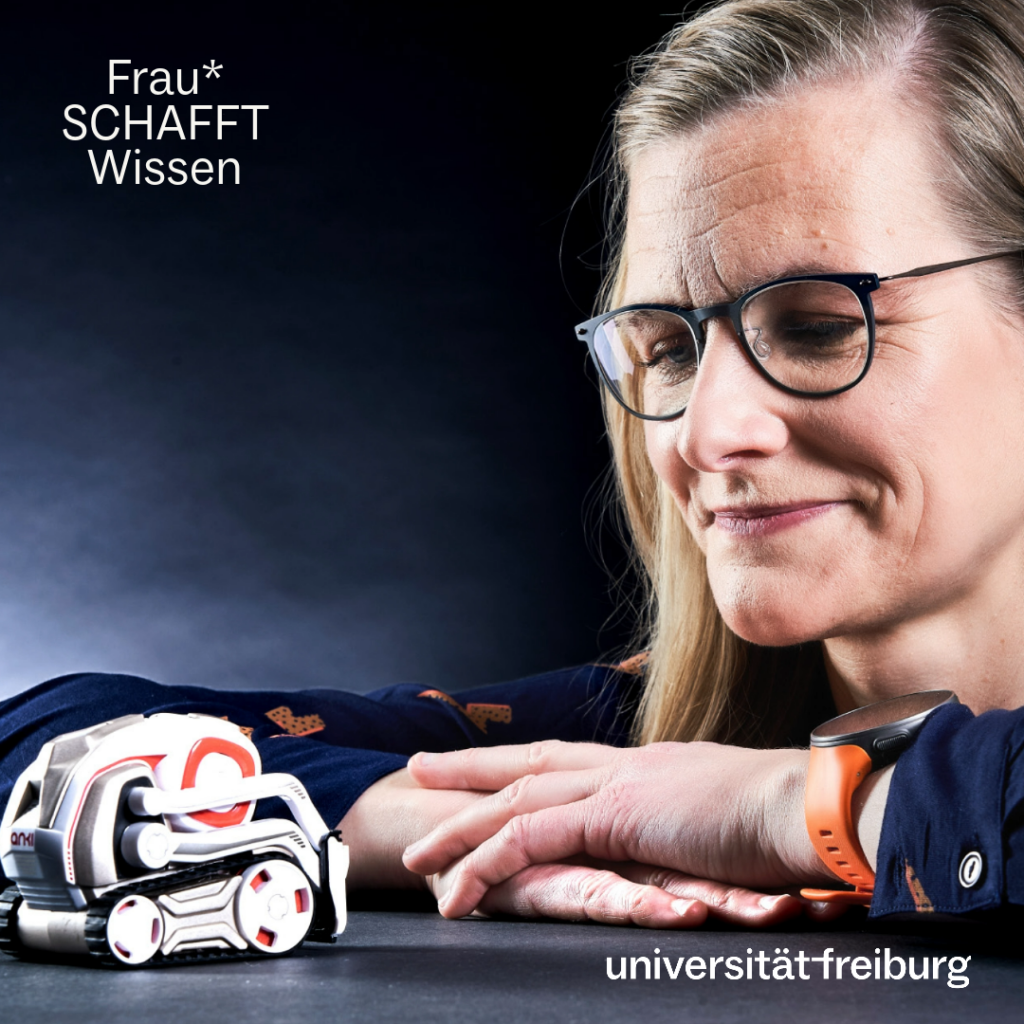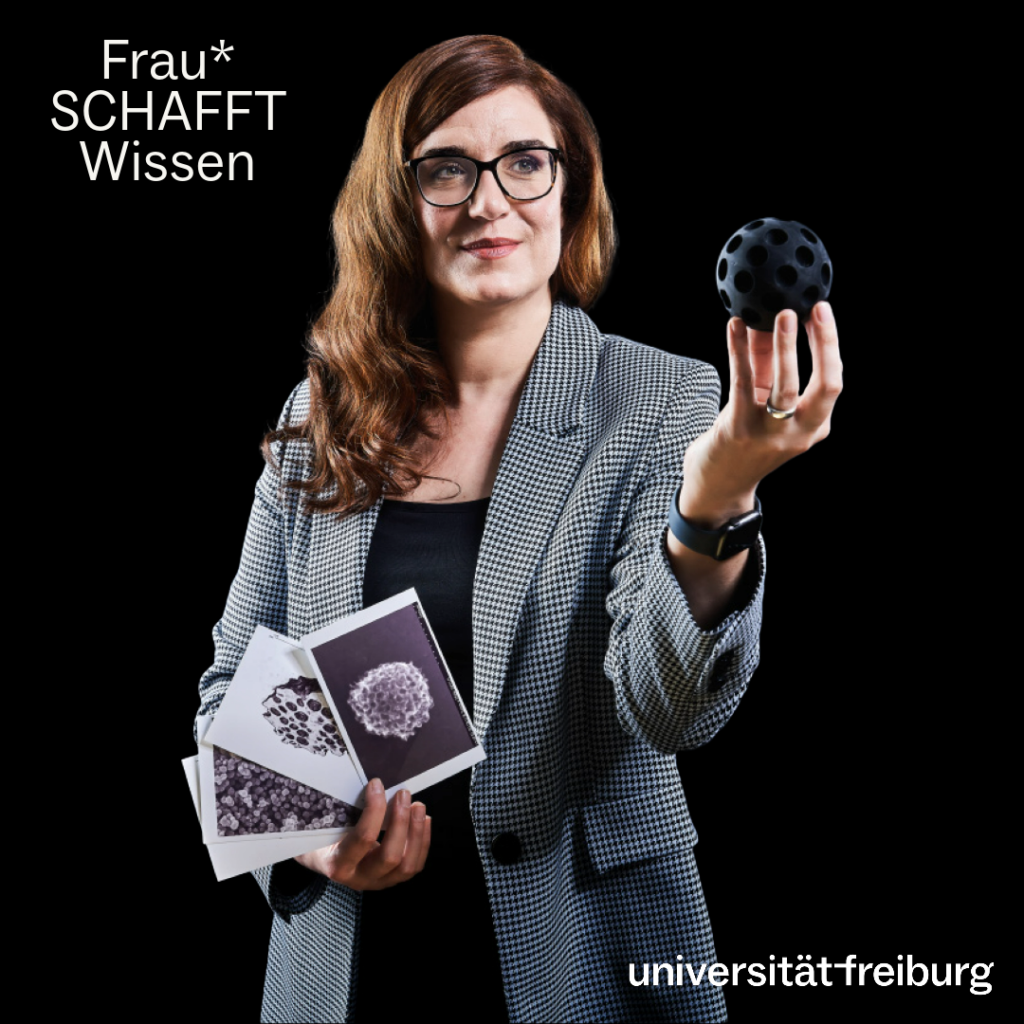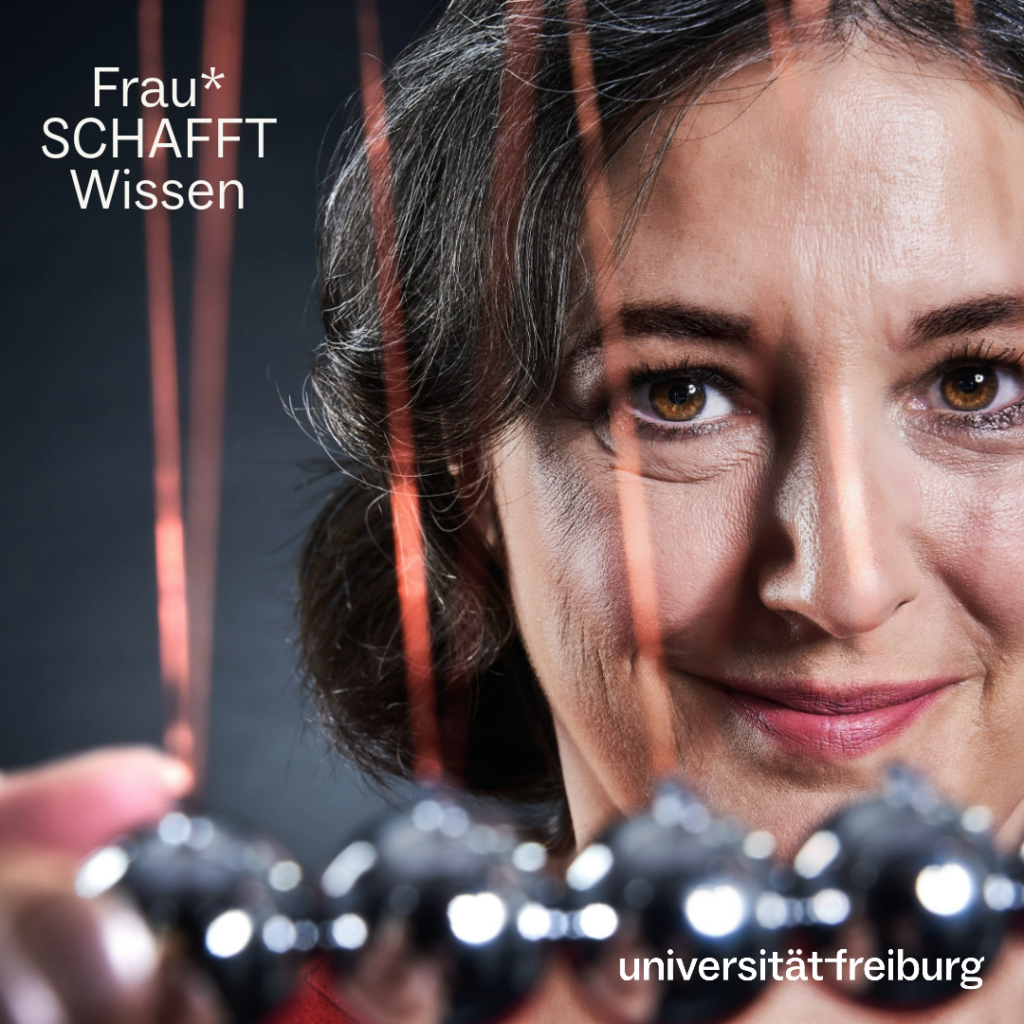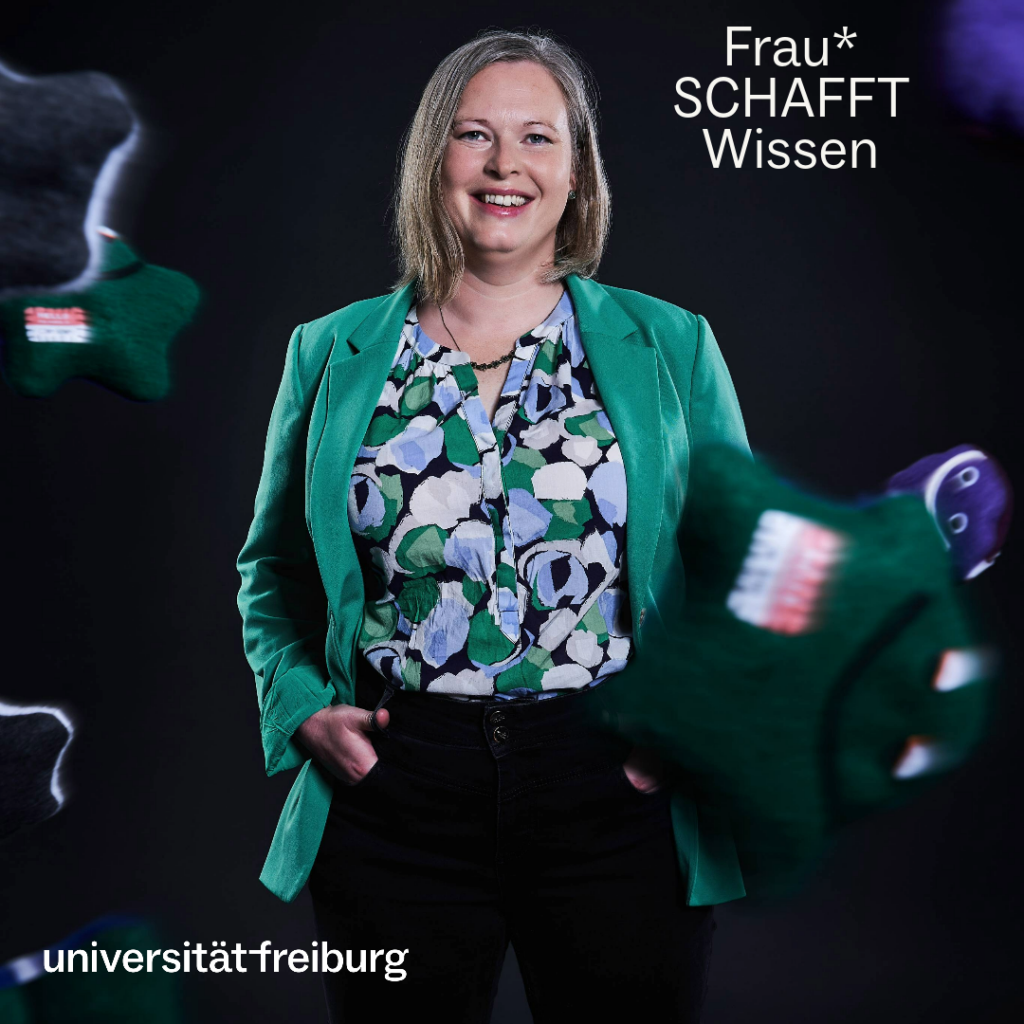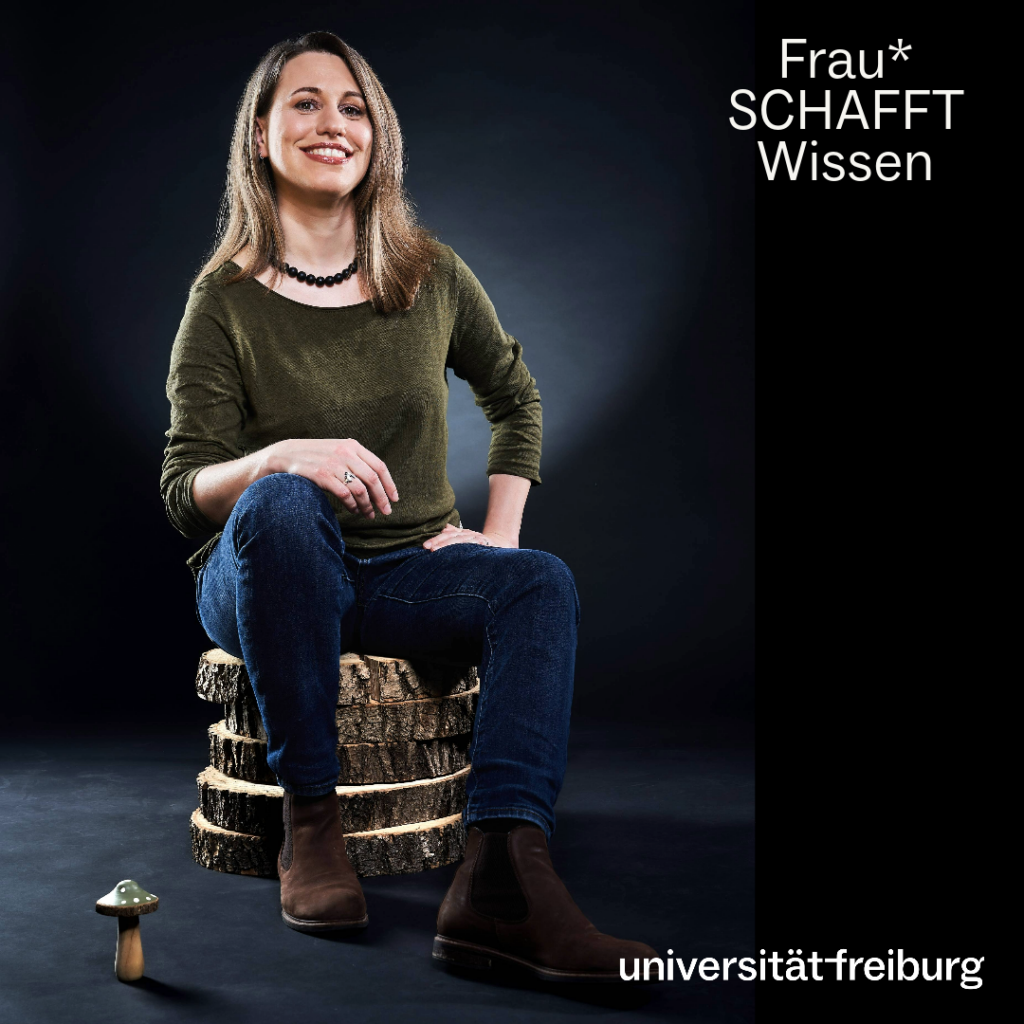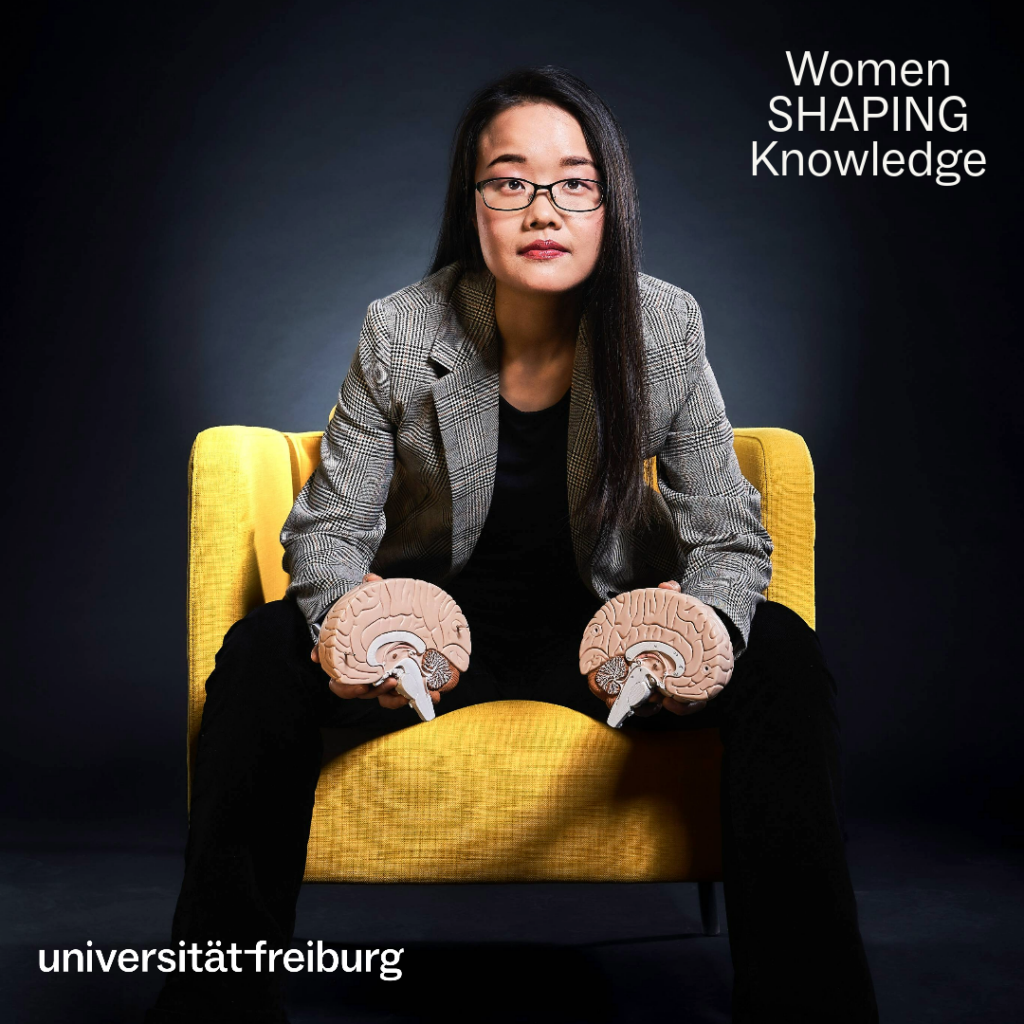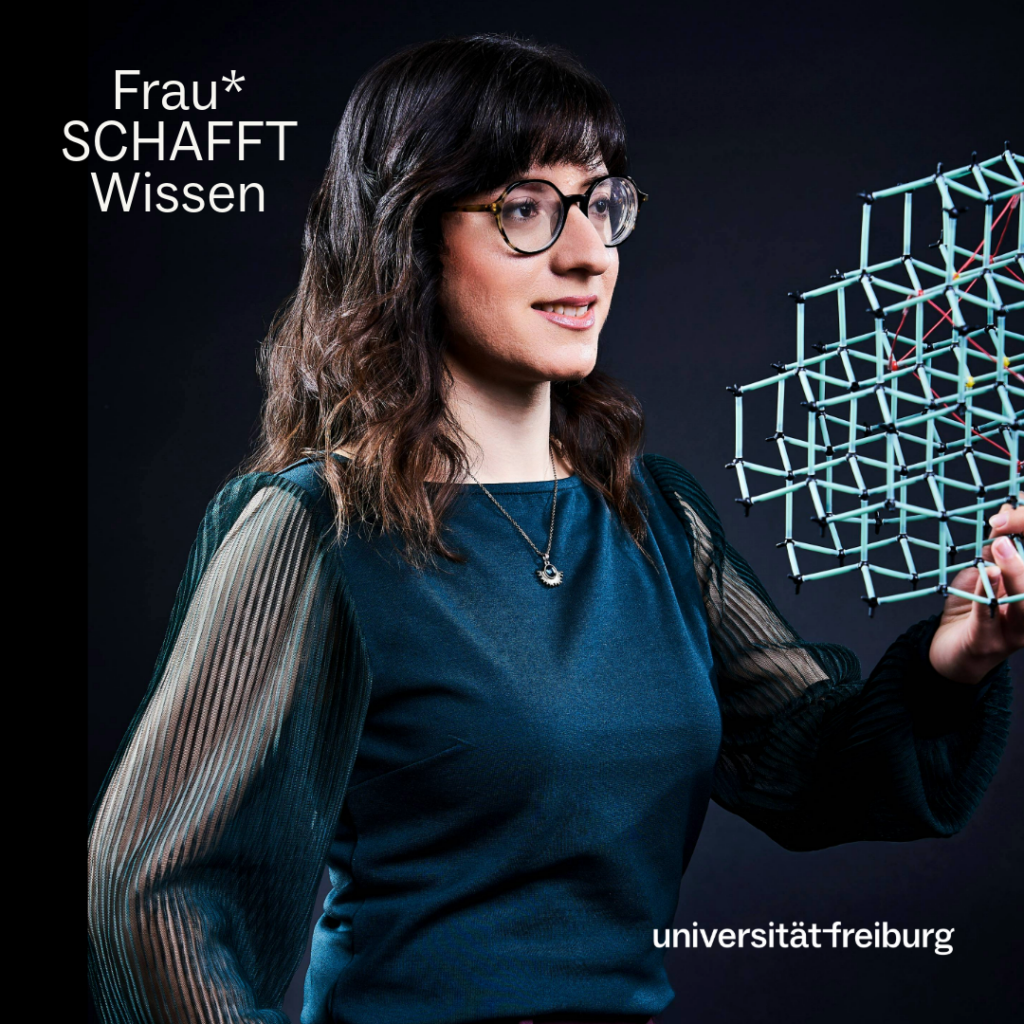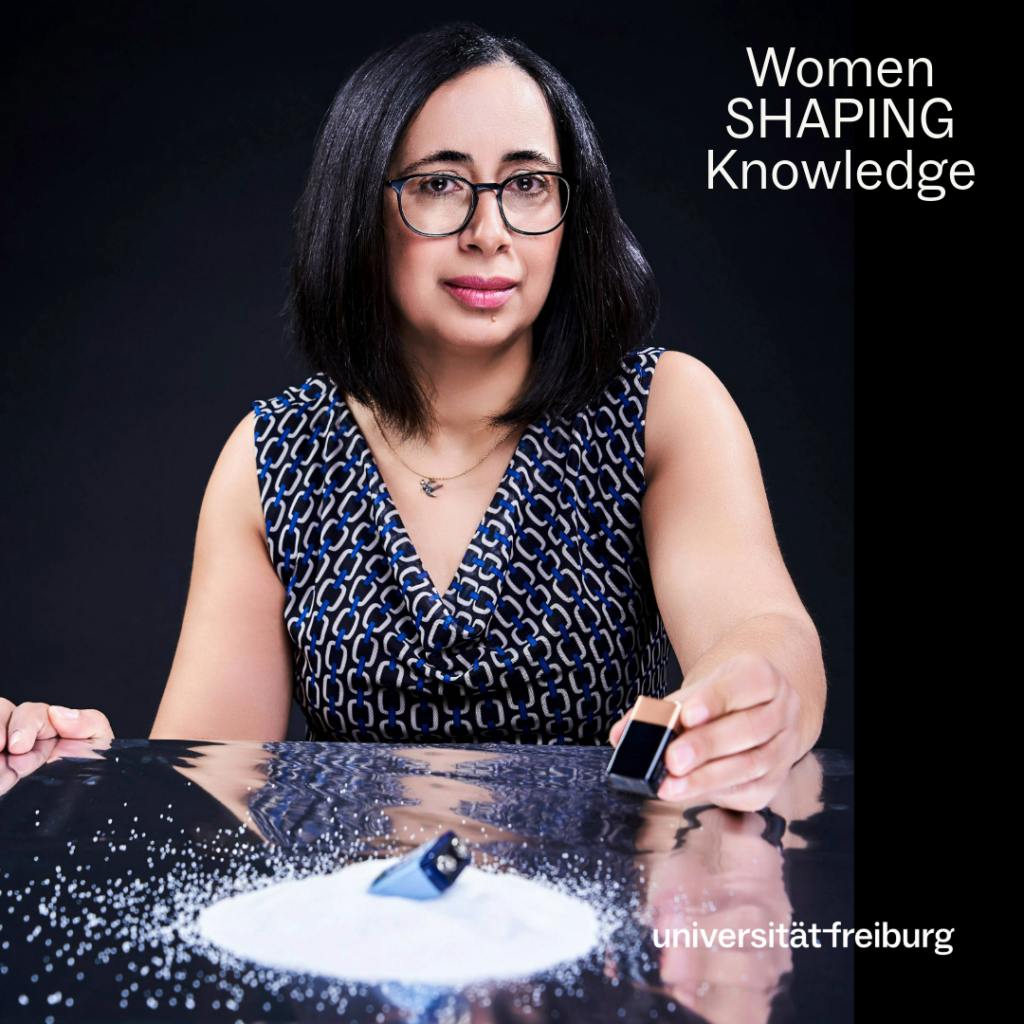“Proust, Voltaire & Emojis“
Eva Erdmann thinks books are embarrassing. Not always, of course, not everywhere, but today she does. Those who know her well would not believe it. Eva Erdmann? The Romance studies lecturer, who takes the time to compile the literature for her seminars in the library at the beginning of the semester so lovingly? Is she truly, this lover of literature, to find books embarrassing? Never. More…
“Architecture changes how you feel”
To Syrian architect and conservator Diana Miznazi, knowledge is power. She sees herself as a representative of migrant women working in science. Diana is proud and grateful for what she has come to achieve as one of them, “It is a great responsibility to have, so I try not to think about it all the time”, she laughs. She is a PhD student and a researcher at the Department for Byzantine Archaeology of the University of Freiburg. …more
Searching for answers in the DNA
Jana Naue is quite the crime solver – a bit like on CSI: Den Tätern auf der Spur. This was one of the reasons she was accepted into the elite program for postdocs of the Baden-Württemberg Foundation, which is committed to a vibrant Baden-Württemberg worth living in. Jana Naue, on the other hand, is more concerned with the opposite. Her research supports the police and public prosecutors in their work, using forensic genetics and, in the future, epigenetics. …more
From Virginia Woolf and Judith Butler to EPICUR?
Hardly anyone knows ‘university’ from as many sides as Kerstin Fest: she studied, earned a doctorate, researched, taught and now finally arrived in science management. Her career at the university has taken her from literary studies to today, where she is involved in the planning and implementation of a European university. …more
The Call of the Archaea
“I’m a nerd, I’ve always loved learning and acquiring new things,” says researcher Prof. Dr. Sonja-Verena Albers, who was elected to the American Society for Microbiology this year, about herself. Her passion is the archaea, probably the least known life forms on this planet despite their extreme and fascinating lifestyles. …more
“It’s like being a detective”
“I spent a long time wondering whether people would take me seriously,” admits Dr. Elisabeth Piller, a historian in the process of transitioning from a junior professorship to a full professorship at the University of Freiburg. “And that certainly has something to do with being a relatively young woman in this environment.” …more
Between field research and everyday academic life
Qatar, spring of 2023. The emirate that – until last December – attracted such great, far-reaching attention: The Men’s World Cup in the Persian Gulf cast long shadows on a country without a soccer culture, a tiny country trying to use its vast treasures and growing influence as a bargaining chip in the world. What has remained of the supposed changes? Political scientist Dr. Julia Gurol-Haller will get to the bottom of this …more
There’s no such thing as ‘impossible’
“Lützerath could still be standing today,” says Astrid Steindorf, her alert gaze adding emphasis to her statement. At the same time, it looks like she would like to march right into Lützerath and say this sentence again to the face of the RWE bosses and explain what other, more sensible energy production alternatives there are if the world of microorganisms is considered. More…
On the serenity of not jumping over every hurdle
At the Institute for Sports and Sports Science, the world still seems to be in order. The sun is shining. Here on the banks of the Dreisam River, a truly picturesque Black Forest idyll unfolds. Jana Strahler, Professor of Sport Psychology, is pleased about this. Fortunately, her campus is not a “big gray box”. No, here “the sports fields, the beach volleyball courts, the green lawn” reign. More…
Printer cartridges, patents and networks
“It actually all started with the printer cartridge. That’s why I’m now working and researching at the university,” said 26-year-old lawyer Friederike Lammert. She moved to Freiburg to study law and successfully completed her first state examination in law in 2020. Ever since then, she has been working as a research assistant at Prof. Dr. Maximilian Haedicke’s Chair of Intellectual Property…more
Racing against the academic clock
The path was clearly laid out before her: a bachelor’s degree in economics and business administration followed by a master’s degree, a top doctoral position and then a professorship. With great ambition, Dr. Laura Renner works on her publications, goes to conferences and prepares her courses, but the hoped-for appointment as professor does not come. More…
She who goes straight ahead does not always come far
“Take the leap – is the advice of Dr. Antje Kellersohn, Director of the Freiburg University Library, to all those who are about to make a big decision. We have our conversation in her modern office, without any dusty oak bookshelves or creaky stepladders. There are several screens on her desk, their color and shape reminiscent of the facade of the University Library. “Take the leap” are three simple but important words. More…
“Freud ruined it for everyone”
At a time when information is a tap away and the task of remembering dates and details can be delegated to digital devices, it can be all too easy to overlook the brain’s ability to handle memory. But for Dr. Monika Schönauer, junior professor and researcher at the University of
Freiburg’s Institute of Psychology, memory is the core of her work and research. More…
“I am fearless!”
Of all things fear could well have been a reason to discourage Chinwe Ogbonna from her plans. As an orphan and the youngest of seven children, Chinwe was raised by her four sisters and two brothers in the Igbo community in Anambra, Nigeria. When I ask her, if that is the reason for her strong will, she laughs out loud and says, “As the youngest girl of six siblings, you have to learn to assert yourself!” More…
Robots at half distance
I meet Sabrina Livanec at her workplace, in the “Intelligent Machine-Brain Interfacing Technology” (IMBIT) building, the headquarters of the BrainLinks-BrainTools center. IMBIT is located on the Flugplatz campus, which is primarily used by the Technical Faculty. The world of the Technical Faculty and IMBIT seems to be full of innovation and progress – the buildings are new and chic, everything has its place. More…
About the big and small catalysts in chemistry
A gloomy day, a huge concrete block stretches out in front of me in all directions. The tops of the gray building complex merge with the cloud-covered sky. Inside the building: long corridors, neon (ghost) lights. The office seems almost like a safe haven. On its wall hangs a whiteboard full of reaction equations, arrows in all directions, no corner untouched by the Sharpie. The office belongs to Anna Fischer, Professor of Chemistry and, in particular, of Inorganic Functional Materials and Nanomaterials, and co-spokesperson of the livMatS (Living, Adaptive and Energy-autonomous Materials Systems) Cluster of Excellence. More…
Steered by Luck and Light
In the centre of the laboratory is a complex apparatus connected to flashing computers. […] An unusual experience for outsiders, but everyday life for neuroscientist Dr. Julia Veit. As group leader of an Emmy Noether project, she is researching the central nervous system of mice at the Institute of Physiology at the University of Freiburg. More specifically, on interneurones and their importance for the transmission of stimuli in the brain. More…
In the shadow of the conditional
It all started with a cup of tea. When Dr. Valerie Lang was still a high school student, she had a physics teacher who opened every lesson with a round of tea for the class. After all, “integrals are much easier to calculate with a warm sip of tea in your stomach.” Lang, who had always had an affinity for maths, began to look forward to her physics lessons more and more. More…
Of women in research and stay-at-home dads
“It’s not just about having completed your research work at the end, but about approaching the subject area with joy and passion.” And that’s what Kathrin Blumenstein does; when she talks about her work – or rather her passion – her friendly brown eyes light up with enthusiasm. More…
When luck is not enough
“I just got really lucky,” shrugs Dephie Huang and gives a small wave as if to brush off the attention. There may be things that can be called ‘luck’ on her path, but a simple dash of luck along the way does not make for an easy journey. At the moment, Dephie is working as a coordinator of Early Career Programs at the Cluster of Excellence CIBSS – Centre for Integrative Biological Signalling Studies at the University of Freiburg. More…
“If you change just one parameter, the result looks completely different.”
Jasmin-Clara Bürger, a postdoc since 2023, opens a drawer at the Institute of Microsystems Engineering at the Faculty of Engineering in Freiburg. A box emerges, in which plates, Bürger’s samples, lie neatly sorted next to each other. More…
When passion is unleashed
“In science, you don’t work for money or fame: it has to be your hobby, and your work actually makes up a big part of your life,” says Sonia Dsoke. Anyone who has this enthusiasm for knowledge will be able to overcome many hurdles. She can tell, because Sonia Dsoke herself has come a long way with quite a few hurdles in her research career. More…
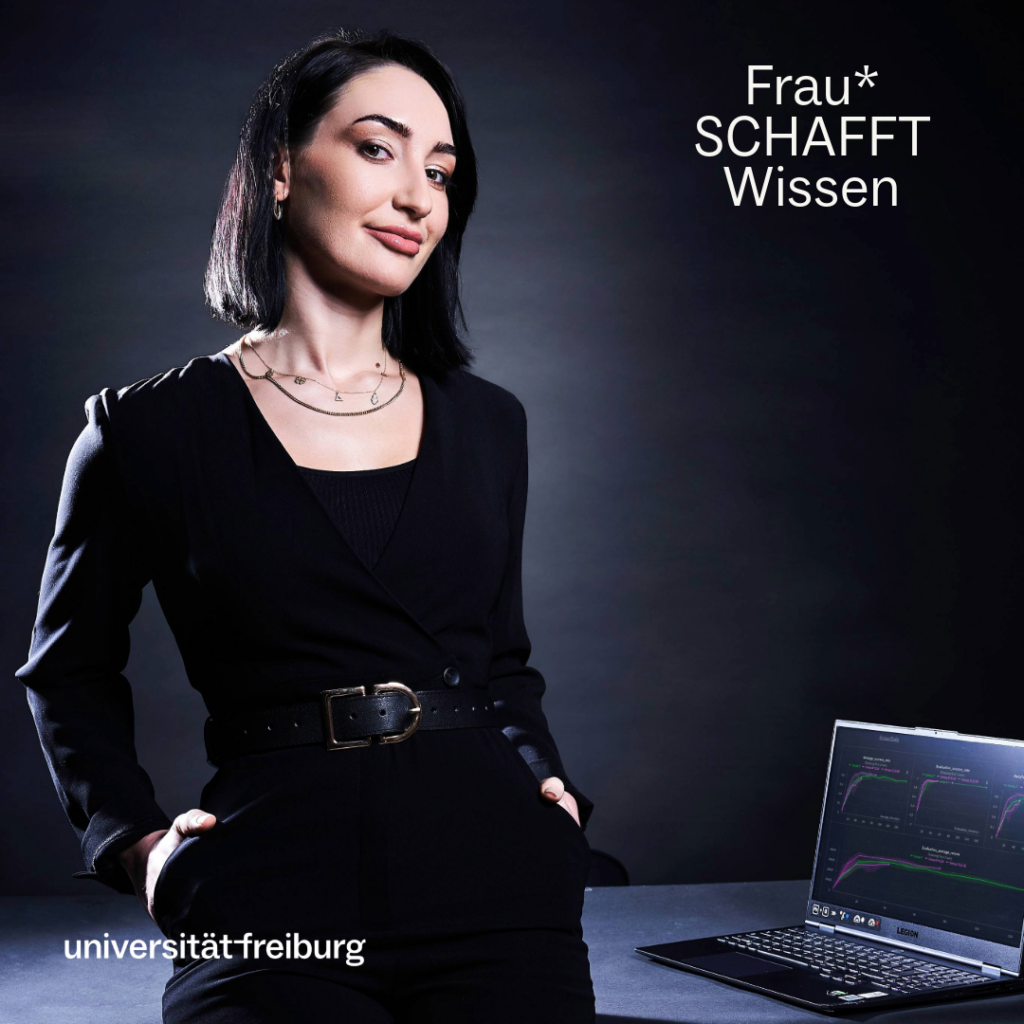
Learning about life from machines
Powerful codes, grounding routines and inspiring role models – Gresa Shala talks about this with a euphoria that makes the otherwise quiet doctoral student beam. Artificial intelligence (AI), especially meta-learning, is “the thing that keeps me wanting to do research,” says Gresa. More…
Encouraging curiosity: insights into the unseen
Have you ever been curious about why materials have certain properties? Or have you ever wondered what is going on at a level that is not normally visible? Professor Oana Cojocaru-Mirédin specialises in Atom Probe Tomography, a relatively new technique that allows us to understand the atomic structure of materials and how they are made up. More…
